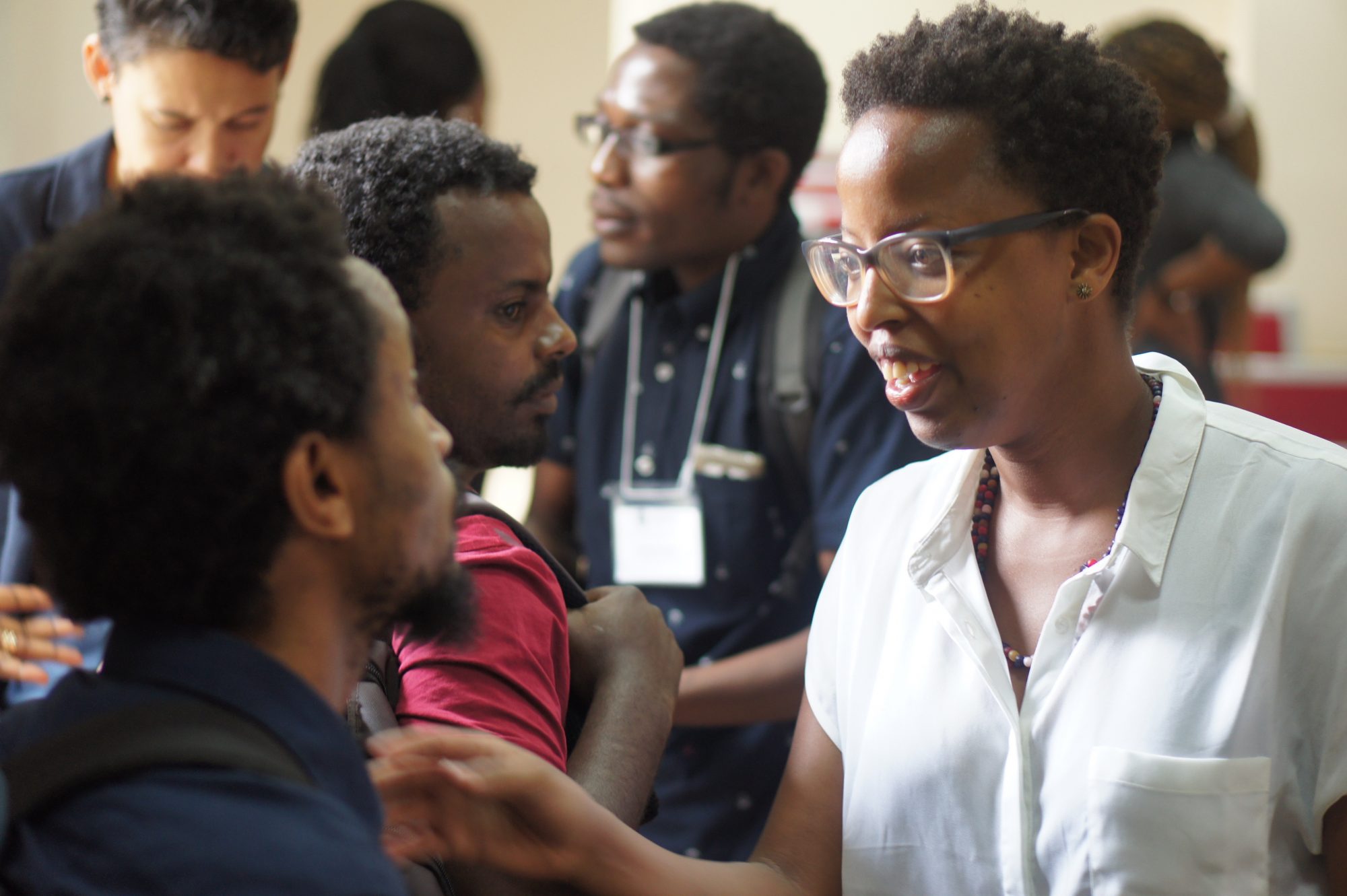Haydee Bangerezako, Dissertation Research Fellow, Burundi
Day 1
Meeting again with the SSRC family was bliss. While Accra was a new city to many of us, we were warmly welcomed by SSRC staff, fellows who were based in Ghana, workshop facilitators, and even speakers who would play prominent roles in the meeting.
Day one started with a group session in which everyone shared the progress they made since the previous workshop, which had been held in August in Nairobi, Kenya. We felt great pride in hearing everyone's highlights from the past six months. Some fellows published articles and book chapters, others presented in international conferences, and still another had given birth to twins (even while making progress on her dissertation). And a workshop facilitator had been promoted to the title of professor in the time between meetings.
Following the opening plenary session, we split into smaller groups based on fellowship stages, depending on whether we were undertaking research or still designing our research proposals. In my group discussion, which had fellows either undertaking or just finishing their fieldwork, we were able to take a panoramic view of the contexts in which we work, discussing what was happening in each other's countries and field sites. Throughout the small group sessions, we discussed the current political and social contexts in Ethiopia, Zimbabwe, South Africa, Burundi, Nigeria, Ghana, and Uganda. This comparative approach allowed us to understand the complexities and similarities of our research sites and also the institutions in which we work. We build research communities that span countries, and we arrive at common solutions to distinct problems.
I was delighted to share an overview of my fieldwork, and I benefitted greatly from the following discussion. I was pleased with the suggestion to think about categories that emerged during the colonial period and that have been either challenged or that have gone unchallenged in Burundian historiography as well as in relevant contemporary scholarly literature. I began to think about how various historians have written about Burundi, constantly reinforcing rigid categories of identity and, in the process, emphasizing difference and conflict, while ignoring commonalities and forms of social coordination. My project, going forward, will critique this form of history writing, which too often results in violence and antagonism.
At the end of the day, Professor Akosua Adomako of the University of Ghana gave a talk on our future careers. The talk was perceptive because it addressed fundamental issues that academics face across institutions and across country borders. I loved her emphasis on being strategic in resolving the issues we face inside our institutions and particularly appreciated her discussion on the challenges that women face, during which she encouraged fellows to have a collective of sisters upon whom they can rely for mutual support and who might speak on each other’s behalf. She also encouraged fellows to continue to be good human beings, grounding work in solving problems facing society, while producing great work in the sharp-edged environment of academia.
The first day concluded with a welcome dinner with local food and dancing to high life music played by a live band. It was great to meet again one's family after months of not seeing each other.
Day 2
I started day two with a quick jog around the University of Ghana campus. The campus is very large, about the size of my city, Bujumbura, so I did not manage to go very far but it was interesting to see the similarities and differences with my own campus in Uganda. On the second day, we met with our second assigned groups, this time a mixture of students at different points in their graduate studies, combining both proposal and research fellows. This arrangement allowed us to engage with fellows at different career stages, including some who we had not had a chance to engage with academically. Those of us who had been in the field and had completed our proposals more than a year ago were able to share ideas for relevant literature that would enhance the proposal development fellows’ work, and in exchange they asked pertinent questions about our fieldwork. I was particularly interested in how a theoretical approach formulated at the proposal stage changes post–research findings.
We ended the day with one-on-one meetings with workshop facilitators, when we had the opportunity to engage in in-depth discussions with a workshop facilitator about our projects, followed by a sumptuous meal where we enjoyed Ghanaian and West African delicacies to the Angolan beats and dance of Kizomba.
Day 3
Sadly, the time spent in Accra not only ran, it raced. The insights gained from the workshop participants and facilitators on the beautiful University of Ghana campus were invaluable. On the final day, we read and discussed each other's abstracts. This was a productive and helpful exercise because we had become well acquainted with each other's projects and thus were able to substantively contribute ideas to particular abstracts, while learning what makes a good abstract in general. We were challenged to point out what was new and innovative in our research and which debates we were in conversation with in our dissertations.
The rich discussions at the workshop assuaged doubts I had and provided me with possibilities to ponder in the coming months. The workshop plays an essential role in bringing us fellows together, engaging one another, and providing us with guidance and mentorship that we don’t necessarily receive on our individual campuses.
Meeting with the same group from August, we were able to enrich our conversations and projects and develop our friendships. Keep an eye out for future collaborations that were born during this workshop!

